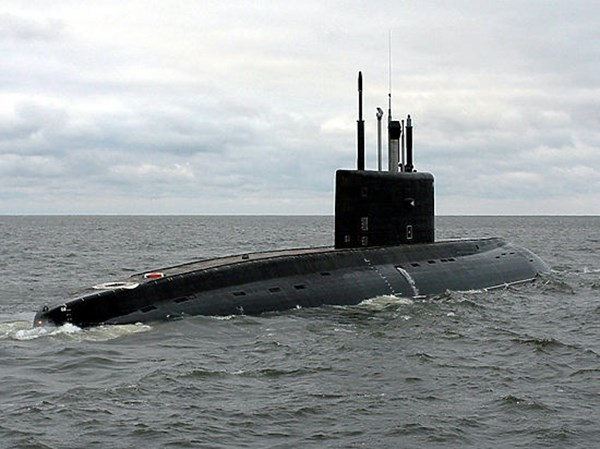Russia to build nuclear submarine base in Iran
Russia is preparing to expand its military presence in the Middle East by collaborating with Iran, which the US imposed a complete oil embargo on in 2019.
Two Iranian ports – Bushehr in the south and Chabahar in the south-east – will become forward bases for the Russian Navy that will even be used by nuclear submarines, OilPrice reports, citing high-ranking sources in Tehran.
Bushehr will also serve as a base where the Russian Aerospace Forces can station Su-37 and Su-57 fighters. There are also plans to station a contingent of Russian troops there, including special forces, which will be there under the same pretext used in Syria and Lebanon – they will technically be there as “advisers” to the Iranian military.
A memorandum on increased military cooperation between the General Staff of the Iranian Armed Forces and the Russian Defense Ministry will serve as the legal basis for Russia’s establishment of this new permanent outpost in the Middle East, in the immediate vicinity of key US allies in the region.
The signing of the document was announced on July 29 by Hossein Khanzadi, commander of the Iranian navy, after visiting St. Petersburg to attend the celebration of the Day of the Russian Navy.
“This is a turning point in Tehran and Moscow’s defense relations,” Khanzadi told Mehr in an interview. As a test case, the two navies will hold joint exercises in the northern part of the Indian Ocean, including the Strait of Hormuz, a key “oil artery” for OPEC countries, through which passes one third of the world’s oil supply. The exercises are scheduled to be held at the start of 2020.
In addition to military cooperation, Tehran will receive financial assistance from Moscow as part of the deal. The assistance will include investments in the development of oil fields abandoned by western companies in the wake of the sanctions, OilPrice’s sources claim.
In 2019, Iran is expecting a $5 billion loan from Russia. The funds are already included in the Islamic republic’s budget for the year 1398 according to the Persian calendar (which begins on March 21, 2019). The funds are expected to be used on infrastructural projects, including nuclear energy, railway transport, and the building of dams, irrigation networks and water pipelines.
Although Russia’s previous attempts to collaborate with Iran have been unsuccessful, and Moscow and Tehran are still in a dispute about rights to the gas in the Caspian Sea, the deal has been supported by the Islamic Revolutionary Guard Corps and the supreme leader, Ayatollah Khamenei.
“If you can’t buy food at a supermarket 10 miles from you, you have no choice but to go to the store on the corner, no matter how lousy it is,” a senior Iranian official observed, referring to the nature of the collaboration with Russia.
The Russian Foreign Ministry is continuing to back Iran on the diplomatic front. On July 29, Russian Deputy Foreign Minister Sergey Ryabkov supported Tehran’s decision to resume the enrichment of uranium following the recent US sanctions.
“We can understand what motivated the Iranians to adopt this method of influencing the mindset of the remaining deal participants,” he remarked.
Russian Foreign Ministry Spokesperson Maria Zakharova accused Washington of trying to overthrow the current regime in Iran, and predicted a “catastrophe” for the US in the event of force being used.
